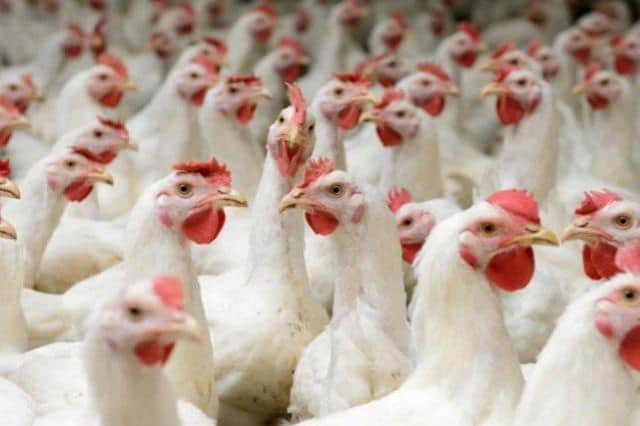Bird flu cases are expected to fall but farmers are told to remain vigilant


Christine Middlemiss said wild birds migrating to the UK have been spreading highly pathogenic avian influenza (H5N1) but they are expected to return to northern Russia when temperatures rise and spring arrives.
The UK has been dealing with its largest ever outbreak, as more than 100 cases have been confirmed since November, and North Yorkshire has been identified as one of the hotspot areas.
Advertisement
Hide AdAdvertisement
Hide AdThe whole of the UK is currently covered by an Avian Influenza Prevention Zone, which requires bird keepers to take measures to try and stop the disease’s spread, such as housing or netting all poultry and captive birds to keep them separate from wild birds.
Dr Middlemiss said the Department for Environment, Food and Rural Affairs (Defra) will look to ease the restrictions when the wild birds begin to leave and the risk of infection falls, but there is no timescale in place.
“At the moment that risk level still remains very high and when it starts to reduce, the first thing we’ll be looking at is removing the housing order,” she said.
“We’ll still be asking for good biosecurity but we’ll be letting birds go outside again because that’s better for their welfare.
Advertisement
Hide AdAdvertisement
Hide Ad“The risk level won’t decline away to nothing and the message is biosecurity will continue to be required on an ongoing basis.”
She added: “We’ll be assessing not just the wildbirds leaving and the risk of infection, but also the welfare of birds kept inside.
“If it starts to get quite warm, quite quickly, that won’t be good for the birds.”
She also said it is not yet clear why the outbreak in the UK is the largest on record but other countries, including France, Canada and the USA, have also been affected.
Advertisement
Hide AdAdvertisement
Hide Ad“We used to generally have an outbreak every three or four years, but that’s two big outbreaks in a row with different strains of bird flu,” she said.
“I'm strongly of the view that we need to work internationally with colleagues to understand what is going on.
“My expert colleagues at Weybridge Laboratory are involved in that work already.”
Defra said all birdkeepers should thoroughly clean and disinfect housing on a regular basis and remain vigilant for signs of disease.
Advertisement
Hide AdAdvertisement
Hide AdClothing, equipment and vehicles should also be cleaned and disinfected before and after contact with poultry or wild birds and people should change their footwear before entering sheds housing poultry.
Health experts say the disease is being spread by wild birds, through direct contact and faeces, but the risk to human health is very low.
A woman in the South West of England tested positive for bird flu in January but the UK Health Security Agency (UKHSA) said she had been in “very close, regular contact with a large number of infected birds” and transmission to humans is "very rare".
